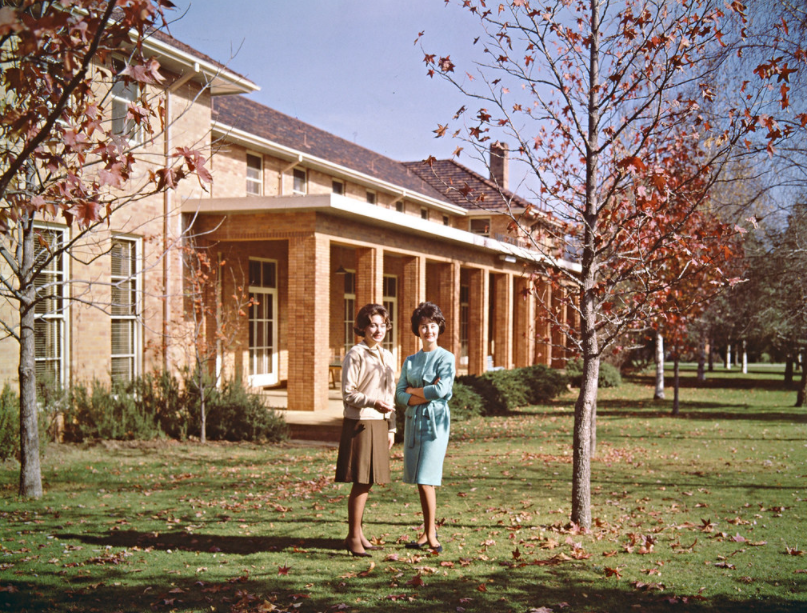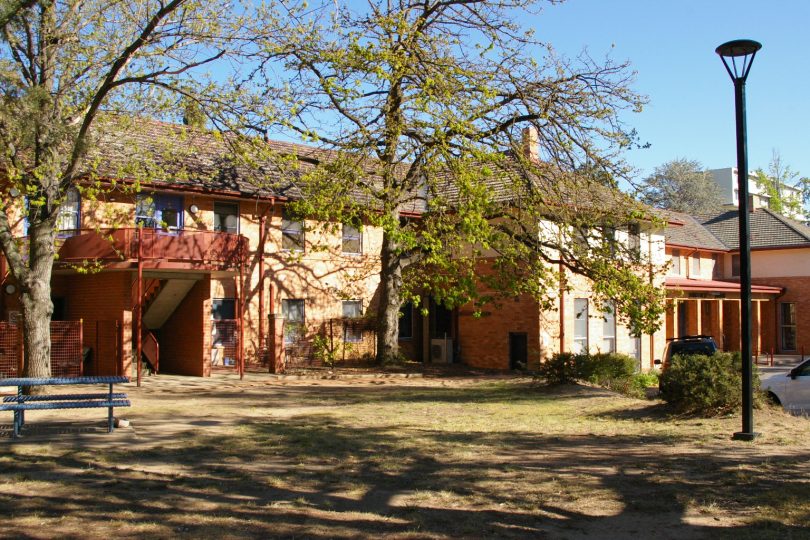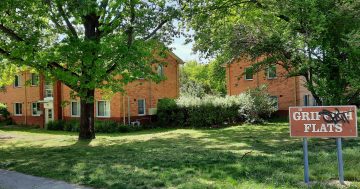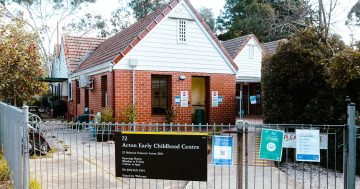
Havelock House in 1963 when it provided accommodation to public servants moving to Canberra. Photo: National Archives of Australia.
Moves are underway to ensure historically significant Havelock House in Turner is not allowed to deteriorate, and its original state is maintained.
The former government hostel, which today operates as social housing, was listed on the ACT heritage register in 2014.
Now the ACT Government has hired consultant GBA Heritage to prepare a conservation management plan to be submitted to ACT Heritage by mid-October this year.
Havelock House is a rare example of a government hostel from the important post-war period of government expansion in the ACT, and is significant as the only remaining one that is still mainly intact.
Havelock House also has direct associations with the Havelock Housing Association (HHA), which emerged out of the public housing operation and now provides a range of affordable, social and specialist disability housing to assist those in need across the ACT and southern NSW region.
The HHA continue to run the organisation from Havelock House and still uses it to provide social housing.
A two-storey brick building planned around two internal courtyards, Havelock House was modified in 1987 to create larger flats from the original individual units, and to partition the original dining room for office space.
According to the $84,000 contract, GBA Heritage will investigate, analyse and establish the heritage significance of the site.

Historic Havelock House in Turner. Photo: File.
CORRECTION 3:20 pm, 27 April: An earlier version of this story referred to Havelock House as “public housing”. These references have been amended to “social housing”.
This will include identifying and describing the physical features of the site, such as boundaries, location, features, buildings and other structures and assets, and assessing their condition.
It will establish the historical context of Havelock House, and provide evidence of any aesthetic or creative significance, or of any scientific, archaeological, cultural or social values.
The conservation management plan will also acknowledge the contribution of individuals and organisations associated with Havelock House, and consider the less tangible heritage components of the property.
GBA Heritage will come up with a set of conservation actions based on the statement of significance set out in the ACT Heritage Register entry, as well as stakeholder consultation, legislation and Havelock House’s own operations.
It will then prepare a list of works to protect, maintain and, where appropriate, enhance the heritage values of Havelock House.
The contract says the maintenance works schedule should provide guidance about whether the heritage register entry can allow for the changing social needs of the Canberra community, and where further actions under the ACT Heritage Act might be required.
Designed in the 1940s, Havelock House operated as a hostel until November 1971, but reopened in 1973 with a cafeteria service providing in-house meals, and was upgraded in 1975.
The hostel closed in 1981 and the next year the Australian Federal Police (AFP) moved in. By the time the Hawke Labor Government was elected in 1983, it had assumed full control.
But a five-month picket by welfare and union activists resulted in a settlement, which committed the government to transferring Havelock House to low-cost housing when alternative office accommodation was built for the AFP, and to undertaking an inquiry into homelessness in the ACT and surrounding regions.
Welfare housing under the newly established community organisation, Havelock Housing Association, became available on 10 April, 1988, and a number of welfare agencies were also given offices at Havelock House.





















